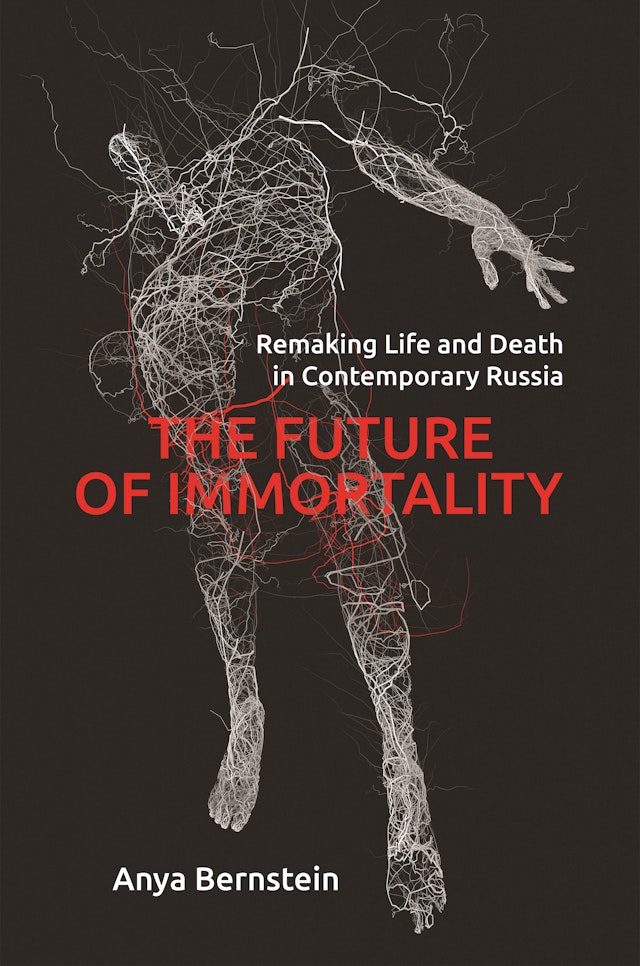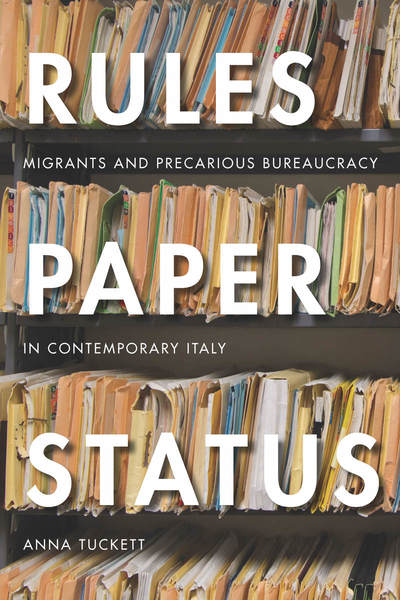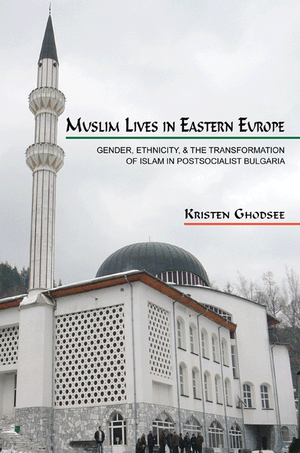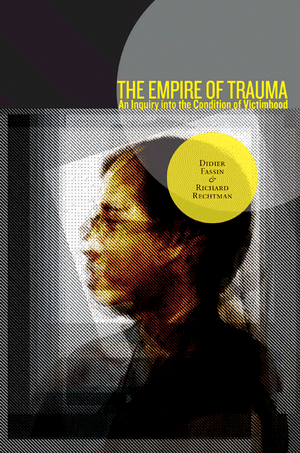William A. Douglass Prize in Europeanist Anthropology
The William A. Douglass Prize in Europeanist Anthropology honors the best book published annually in Europeanist anthropology as determined by a panel of senior anthropologists, chaired by the Society’s President-elect.
Nominations are now open for the 2025 prize!
Eligible volumes must be available in English, whether published in the US or abroad. They must have been published in the calendar year before the prize adjudication. Multi-author volumes are eligible as well, but edited collections of essays are not.
The deadline for submission of nominations is May 1, 2025.
Books submitted for the 2024 prize consideration must have been published in 2024 (as indicated on the copyright page); books translated into English must have appeared in English in 2024 though they may have been published in another language earlier.
The prize recipient(s) is/are named shortly before the annual meeting of the American Anthropological Association, with suitable publicity provided for the winning entry at the annual meeting and on the SAE website.
To be considered for the Douglass Prize a hard copy of the eligible volume (no manuscripts, photocopies or electronic files will be accepted) must be sent to each of the three judges on the selection panel (for a total of three submitted copies). For instructions on where to send the books please contact the current SAE President-elect, Professor Neringa Klumbyte, by email at klumbyn@miamioh.edu.
Each nomination must also include a submission fee of $50. You can pay online at the AAA website by clicking this link. You can also pay by check. The check should be made out to AAA/SAE and clearly marked as a submission fee. Please send checks to the attention of:
Christian Martinez, Controller
American Anthropological Association
2300 Clarendon Blvd, Suite 1301
Arlington, VA 22201-3386
703.528.1902, ext 1160 – fax: 703.528.3546
Website: www.americananthro.org
cmartinez@americananthro.org
****************
ANNOUNCING THE DOUGLASS BOOK PRIZE WINNERS FOR 2024
Congratulations to Elizabeth Anne Davis, winner of the 2024 Douglass Book Prize for her book, Artifactual: Forensic and Documentary Knowing (Duke University Press), as well as to Apostolos Andrikopoulos, who receives an Honorable Mention for Argonauts of Western Africa: Unauthorized Migration and Kinship(University of Chicago Press). Seventeen books were nominated for the prize, with a number of very strong contenders. On behalf of SAE, President-Elect Dorothy Zinn, who organized the 2024 competition, profusely thanks the other members of the Douglass Book Prize Judging Committee: Adriana Petryna (U. Pennsylvania) and Charles Stewart (Emeritus, UCL).

Dorothy Zinn, Elizabeth Anne Davis, and Apostolos Andrikopoulos at the 2024 Douglass Distinguished Lecture, Tampa (photo by Smoke Musaraj)
Elizabeth Anne Davis’s Artifactual is a bold and sensitive experiment in rendering a difficult subject, missing persons in the context of ethnonationalist violence in Cyprus, a divided society in the heart of today’s Europe. Davis offers an ethnographic account and analysis of a very contemporary problem: the enigmatic, elusive and conflictual production of knowledge. She examines the “artifactual” production of historicity by following forensic teams charged with recovering unidentified victims on the one hand, and by studying the use of documentary footage and photographs related to the violent events on the other. Among other things, the book deeply dialogues with recent literature on memory and archives, divided societies, suspicion and state violence. The selection committee also appreciated how beautifully written the volume is, including the parallel text created by an extensive collection of images. Davis’s innovative book is sure to have an impact within and beyond Europeanist anthropology.
Apostolos Andrikopoulos’s Argonauts of Western Africa: Unauthorized Migration and Kinship Dynamics in a Changing Europe is a novel treatment of a classic anthropological theme, kinship, as it addresses the highly topical phenomenon of African migration to Europe. Moving in an empirically rigorous, multisited ethnography between the Netherlands, West Africa and Greece, Andrikopoulos explores how “kinning” processes among African migrants create ties that facilitate their migratory projects —whether for obtaining documents to authorize their migration or for naturalizing as European citizens— while also attending to potentially adverse, less studied aspects of kinship. The book is a significant contribution to literatures arguing for greater attention to relational and affective dimensions of the state. The selection committee also appreciated the book’s lively and engaging writing.
****************
PREVIOUS YEARS’ AWARDEES
The 2023 William A. Douglass Book Prize in Europeanist Anthropology was awarded ex-aequo to two books: to Traces of Violence: Writings on the Disaster in Paris, France by Robert Desjarlais and Khalil Habrih (University of California Press) and Ruderal City: Ecologies of Migration, Race, and Urban Nature in Berlin by Bettina Stoetzer (Duke University Press). SAE president-elect Dorothy Zinn (Free University of Bozen-Bolzano) chaired the 2023 William A. Douglass Prize Committee, which included Dieter Haller (Bochum) and Jaro Stacul (Memorial U). Hearty congratulations to the awardees!
The 2022 William A. Douglass Book Prize in Europeanist Anthropology was awarded jointly to two authors: to Siv B. Lie for Django Generations: Hearing Ethnorace, Citizenship, and Jazz Manouche in France (University of Chicago Press, 2021) and to Filippo Bonini Baraldi for Roma Music and Emotion (Oxford University Press, 2021). SAE president-elect Jane Cowan (Sussex) chaired the 2022 William A. Douglass Prize Committee, which included Stef Jansen (Sarajevo) and Andrea Muehlebach (Bremen). The committee warmly congratulates the awardees.
The 2021 William A. Douglass Prize in Europeanist Anthropology was awarded to Darryl Li for his book The Universal Enemy: Jihad, Empire, and the Challenge of Solidarity (Stanford University Press, 2020).
The judges awarded two honorable mentions: to Noelle Molé Liston for The Truth Society: Science, Disinformation, and Politics in Berlusconi’s Italy (Cornell University Press, 2020) and Fabio Mattioli for Dark Finance: Illiquidity and Authoritarianism at the Margins of Europe (Stanford University Press, 2020). Jane Cowan (Sussex), SAE President-Elect, chaired the 2021 Selection Committee, which included Andrew Graan (Helsinki) and Nitzan Shoshan (El Colegio de México).
The 2020 William A. Douglass Prize in Europeanist Anthropology was awarded to Anya Bernstein for her book, The Future of Immortality: Remaking Life and Death in Contemporary Russia (Princeton University Press, 2019). Gerald Creed (CUNY), SAE President-Elect, chaired the Prize Committee, which included Elizabeth Dunn (Indiana University) and Yael Navaro (Cambridge).

The 2020 William A. Douglass Prize in Europeanist Anthropology honorable mention was awarded to Michał Murawski for his book, The Palace Complex: A Stalinist Skyscraper, Capitalist Warsaw, and a City Transfixed (Indiana University Press, 2019).
The 2019 William A. Douglass Prize in Europeanist Anthropology was awarded to Anna Tuckett for her book, Rules, Paper, Status: Migrants and Precarious Bureaucracy in Contemporary Italy (Stanford University Press, 2018).

The 2019 William A. Douglass Prize in Europeanist Anthropology finalists were School of Europeanness: Tolerance and Other Lessons in Political Liberalism in Latvia by Dace Dzenovska (Cornell University Press), Power Struggles: Dignity, Value, and the Renewable Energy Frontier in Spain by Jaume Franquesa (Indiana University Press) and Tight Knit: Global Families and the Social Life of Fast Fashion by Elizabeth L. Krause (University of Chicago Press).
The 2018 William A. Douglass Prize in Europeanist Anthropology was awarded to Elif M. Babül for her book, Bureaucratic Intimacies: Translating Human Rights in Turkey (Stanford University Press, 2017). Sarah F. Green (University of Helsinki), President of SAE, chaired the Prize Committee, which included Catarina Frois (Instituto Universitário de Lisboa) and Nikolai Ssorin-Chaikov (Higher School of Economics).
Honorable mentions were awarded to Naor Ben-Yehoyada for his book The Mediterranean Incarnate: Region Formation Between Sicily and Tunisia Since World War II (University of Chicago Press, 2017) and to Naomi Leite for her book Unorthodox Kin: Portuguese Marranos and the Global Search for Belonging (University of California Press, 2017).
The 2017 William A. Douglass Prize in Europeanist Anthropology was awarded to Nitzan Shoshan for his book The Management of Hate: Nation, affect, and the governance of right-wing extremism in Germany (Princeton University Press, 2016). Sarah F. Green (University of Helsinki), President-elect of SAE, chaired the Prize Committee, which included Catarina Frois (Instituto Universitário de Lisboa) and Nikolai Ssorin-Chaikov (Higher School of Economics).

The 2016 William A. Douglass Prize in Europeanist Anthropology was awarded to Maple Razsa for Bastards of Utopia: Living Radical Politics after Socialism (University of Indiana Press, 2015). Betsy Krause (University of Massachusetts Amherst) chaired the committee, which included Adriana Petryna (University of Pennsylvania) and Paul Silverstein (Reed College) as members.

The 2015 William A. Douglass Prize in Europeanist Anthropology was awarded to Lilith Mahmud for The Brotherhood of Freemason Sisters: Gender, Secrecy and Fraternity in Italian Masonic Lodges (University of Chicago Press, 2014). Betsy Krause (University of Massachusetts Amherst) chaired the committee, which included Doug Rogers (Yale University) and Miriam Ticktin (The New School for Social Research) as members.

Honorable mention for 2015 was awarded to Mayanthi L. Fernando for The Republic Unsettled: Muslim French and the Contradictions of Secularism (Duke University Press, 2014).

The 2014 William A. Douglass Prize in Europeanist Anthropology was awarded to Krisztina Fehérváry for her book Politics in Color and Concrete: Socialist Materialities and the Middle Class in Hungary (Indiana University Press, 2013). Pam Ballinger chaired the committee, which included Mark Ingram and Tanya Richardson as members.

The 2013 William A. Douglass Prize in Europeanist Anthropology was awarded to The Make-Believe Space: Affective Geography in a Postwar Polity (Duke University Press, 2012) by Yael Navaro-Yashin. The committee was chaired by Pamela Ballinger and included Keith Brown and Andrea Smith.

Honorable mention for 2013 was awarded to Andrea Muehlebach for her book The Moral Neoliberal: Welfare and Citizenship in Italy (University of Chicago Press, 2012).

The 2012 William A. Douglass Prize in Europeanist Anthropology was awarded jointly to Masquerade and Postsocialism: Ritual and Cultural Dispossession in Bulgaria (Indiana University Press, 2011) by Gerald Creed (CUNY Graduate Center)

and to Casualties of Care: Immigration and the Politics of Humanitarianism in France (University of California Press, 2011), by Miriam Ticktin (The New School). Caroline Brettell (Southern Methodist University) and Andrea Smith (Lafayette College) served on the committee chaired by Jeffrey Cole.

The 2011 William A. Douglass Prize in Europeanist Anthropology was awarded to Kristen Ghodsee (Bowdoin College), for her book, Muslim Lives in Eastern Europe: Gender, Ethnicity, and the Transformation of Islam in Postsocialist Bulgaria (Princeton University Press, 2010). Caroline Brettell and Susan Carol Rogers served on the committee chaired by Jeffrey Cole.

The 2010 William A. Douglass Prize in Europeanist Anthropology winner was The Empire of Trauma: An Inquiry into the Condition of Victimhood (Princeton University Press, 2009) by Didier Fassin.

Honorable Mention for 2010 goes to: Bodies in the Bog and the Archaeological Imagination (University of Chicago Press, 2009) by Karin Sanders.

The 2009 William A. Douglass Prize in Europeanist Anthropology winner was Ruth Mandel (University College London) for Cosmopolitan Anxieties: Turkish Challenges to Citizenship and Belonging in Germany (Duke University Press, 2008).

The 2008 William A. Douglass Prize in Europeanist Anthropology was awarded to Catherine Wanner for Communities of the Converted: Ukrainians and Global Evangelism (Cornell University Press, 2007).

In 2007, two books were co-awardees: Defending the Border: Identity, Religion, and Modernity in the Republic of Georgia (Cornell University Press, 2006) by Mathijs Pelkmans (London School of Economics)

and Colonial Memory and Postcolonial Europe: Maltese Settlers in Algeria and France (Indiana University Press, 2006) by Andrea L. Smith (Lafayette College).

Previous winners include books authored by Sarah F. Green, Christopher Tilley, Katherine Verdery, Jenny Wright, and Marilyn Silverman.
















